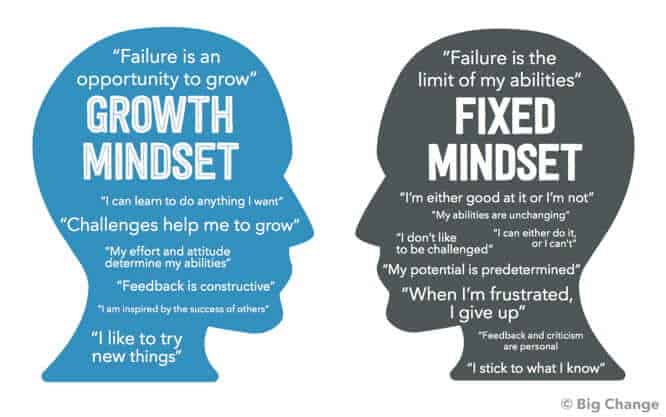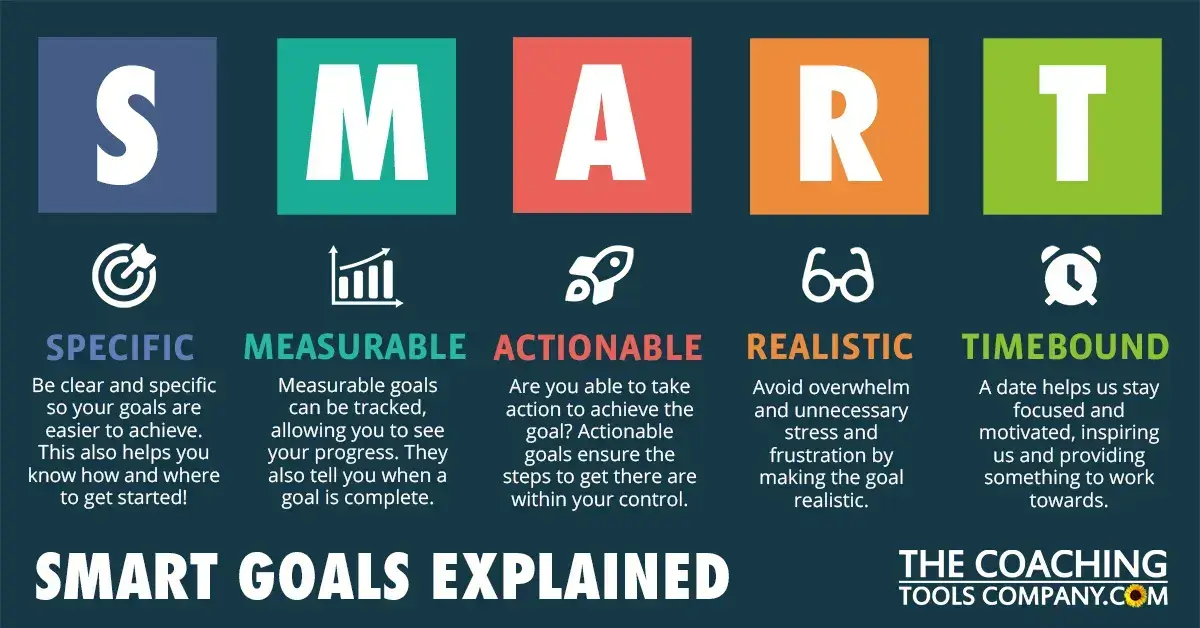The Ultimate Guide to Believing in Yourself
Key Points:
- A lack of self-belief is caused by a mix of part nature and part nurture.
- The best way to start believing in yourself is to start small and attain regular wins.
- Use a mix of neuroscience and psychology to change your way of thinking to realistically positive.

Imagine what humanity could achieve if it weren’t plagued with self-doubt and negative thoughts. Envisage a world free from self-imposed limitations that prevent the majority from reaching their full potential. Imagine what you could accomplish if you fully believed in yourself.
Believing in yourself can be easy for some but difficult for most. It depends on many factors, including individual experiences, backgrounds, and likely genetics to some degree.
Fortunately, nothing is set in stone. Believing in yourself is a meta-skill that can be crafted and developed like any other, and this article will provide you with the knowledge and tools to start shifting your life in the direction you always envisaged.
What Does it Mean to Believe in Yourself?
The definition of belief is to accept something as true – to feel sure of the truth. Believing in yourself, therefore, requires self-confidence in your knowledge and capabilities, and that you are prepared to tackle any challenge that may arise.
Fortunately, skills are learnable and can be improved with time and experience. Thus, belief in yourself is also attainable with practice, and the rewards for doing so are life-changing, not only for yourself but for society as a whole.
The Benefits of Believing in Yourself
To list all of the benefits of self-belief would be beyond the scope of this article; a quick scan on Amazon shows at least 20,000 books dedicated to the topic. But below is a list of the five most impactful benefits that will yield noticeable results the moment you start taking action:
1) Perseverance and Resilience
When you believe in yourself, you accept your weaknesses as much as your strengths. We are only human and cannot be an expert across all areas.
Instead of focusing on perfectionism, you should direct your behavior toward mitigating your weaknesses while maximizing your strengths.
When we accept our weaknesses and the fact that it is unreasonable to hold ourselves to perfect standards, we can accept failure for what it is – part of the learning process. It is far easier to persevere in a task when we believe that our efforts and results are what matters, not the process.
For the vast majority of goals, it doesn’t matter how many mistakes you make in the long run. Whether it takes 100, 200, or even 1,000 attempts to succeed, getting there is the only thing that counts. Perseverance trumps perfection every time. And when you believe in yourself, you know that success is a matter of when not if.
2) Increased Performance
With the belief that your capabilities can result in whatever you wish to achieve, you will start pursuing more goals and feel confident in your ability to overcome difficult challenges. Over time, you will be able to complete higher-order tasks more efficiently.
Instead of procrastinating on unpleasant tasks, your repeated instances of previous success will enable you to envision the light at the end of the tunnel. By focusing on the goal and not the potential problems, you can remain focused on the end goal, not the path.
Bust most importantly, your efforts will result in measurable changes. Nothing is more frustrating than effort without reward, but self-confidence, from memories of past success, provides the energy needed to overcome the limbic resistance to effort and to overcome overwhelm.
3) Environmental Mastery - Achieve Your Goals
The magnitude of self-belief depends on how you view the delicate balance between your performance and your environment (internal vs. external variables) – what is known as environmental mastery. Those with self-doubt see themselves limited by their environment, where they have little control and struggle to overcome unexpected situations.
Those with self-trust, however, can believe that they are free to overcome the initial restrictions from their environment and have the autonomy to instill change.
4) Self-Confidence, Self-Belief, and Self-Trust
The belief that your efforts are worthwhile and will yield positive change establishes an immense sense of confidence. Upon self-reflection, you will see significant value as a human who can contribute to not only their own success but to society as a whole.
These positive qualities will not only enhance external results; they also induce internal happiness. Notable American Psychologist, Dr. Martin Seligman, has pursued the science of positive psychology for much of his professional life and has determined that there are five fundamental components to living a good life of happiness.
These components (known collectively as PERMA) are positive emotion, engagement, relationships, meaning, and accomplishment. When all five are present, one can be said to be living a life of “well-being” and can flourish in anything one attempts.
5) Growth Mindset
A growth mindset is a concept pioneered by Carol Dweck of Standstead University and her colleagues (Dweck, 2006). It describes a learner’s attitudes and beliefs about intelligence and ability.
Those with a mindset for growth believe that their intelligence and abilities can be developed, in contrast with those with a fixed mindset who believe that their abilities, talents, and traits are fixed and determined by genetics.
The average person is usually a mix of the two, sometimes believing in growth and sometimes limited by a fixed mentality. Those who believe in themselves tend to lean more often toward a growth mindset.
Recent progress in neuroscience, however, has shown that the brain is far more malleable than previously thought, a trait known as neuroplasticity – the capacity of neurons and their networks in the brain to alter their connections and behavior in response to new stimuli.
Research by Rosenzweig, Bennett, and Diamond (1972) showed that two groups of rats, one of which lived in enriched conditions (EC) while the other lived in deprived conditions (DC), changed the physical properties of their brains over just 60 days.
The rats living in enriched conditions developed heavier frontal lopes and more acetylcholine receptors. The total average brain weight for EC rats was 7-10% higher than DC rats, with EC rats showing an incredible 20% increase in the number of synapses.
Technology is finally developing to the point where neuroscience and psychology can complement each other and it is increasingly showing that the ability to believe in yourself induces quantifiable neural change.
Why do People Not Believe in Themselves?
The question remains: why do so many people have difficulty believing in themselves when the evidence of improvement is clear and the benefits so great?
The answer lies in biology. Although we are unique in that we are the only species with a highly developed conscious mind capable of rational thought and emotional inhibition, we are still subject to animalistic cravings, impulses, and instincts.
Below are the three key components involved in limiting your positive thoughts.
Your Free Book is Waiting
You’ll Learn:
- How to Create Habits – The Right Way
- Create a Bulletproof Plan to Achieve Your Goals
- Master the Art of Failing
- Rediscover Your Love of Learning
- Instantly Become More Personable
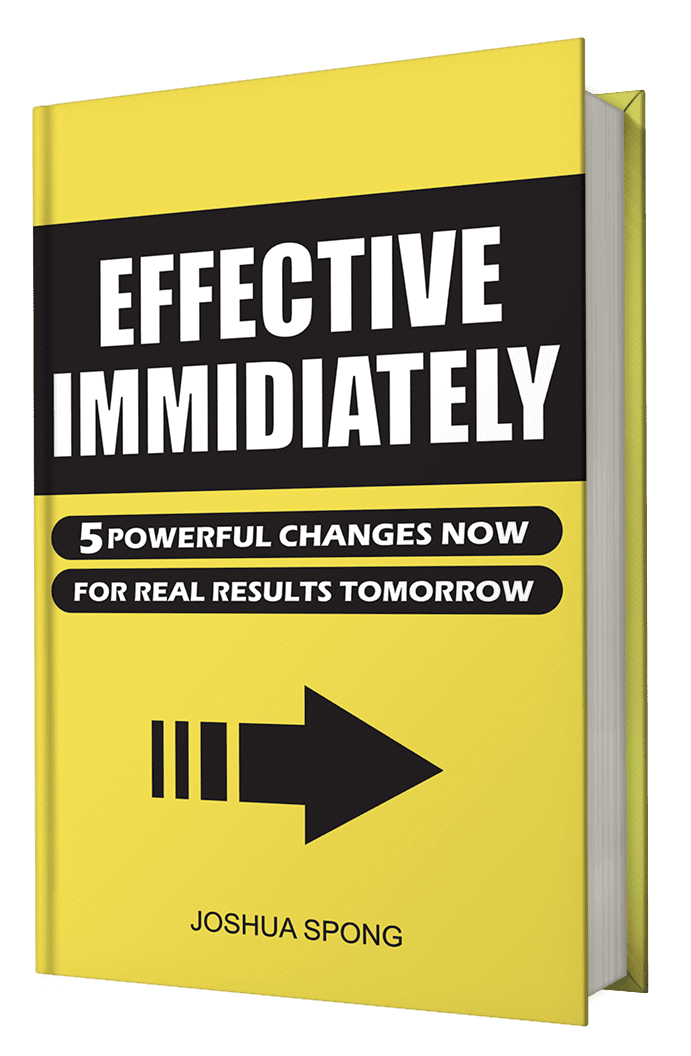
1) The Negativity Bias
The negativity bias describes the notion that things of a negative nature, such as negative thoughts, emotions, events, and interactions, have a more powerful influence over our mental state than positive or neutral ones.
In other words, the negativity bias is the tendency to focus more on negative things and to dwell on them for longer.
The basis for this is in our primal subconscious instincts. Back in our hunter-gatherer days, foraging for resources such as food and shelter often contained significant dangers.
From territorial disputes to storms, we had to prepare for every situation like our life depended on it, because often it did. It is far safer to overestimate a threat than to underestimate it; the difference could mean life or death.
Humans, therefore, evolved the subconscious ability to place more weight on adverse events than positive ones. While this once helped us to survive, in modern society, it often makes it difficult to thrive.
Negative self-talk, the antithesis of self-confidence, is therefore natural. And because it stems from emotion and the primal limbic system, it reacts far quicker than our cognitive prefrontal cortex.
This means that these negative impulses, manifesting in negativity and self-doubt, will always occur because they arise faster than we can consciously respond to them.
While we cannot control their appearance, we can control how we consciously react to them. We can (and must) identify when our primal subconscious mind is driving our thoughts, and use our conscious mind to acknowledge, accept, and respond to it appropriately.
We cannot control these thoughts; they arise faster than we can react to them. And because they are beyond our control, we should not judge or blame ourselves for them. But we can manage them when we become aware. And this is where you should direct your focus.
2) An Unhealthy Fear or Failure
By acknowledging our weaknesses, we also accept that mistakes are inevitable. Perfection does not exist in our pragmatic world, nor does it need to. Successful businesses and entrepreneurs understand that execution – the art of getting things done – yields greater results than continually striving for perfection.
When we understand that perfection is not practical nor usually required, we can accept that our failures are not end-points, but opportunities to pivot closer to our goal.
Nothing in this world worth pursuing comes easy, so success depends not only on winning but on how we choose to respond to loss.
A more practical definition of success would be the accumulation of just enough failures for you to acquire the necessary knowledge to achieve a goal. When we accept that “failure” is simply an outcome different from our expectations, we can take solace in knowing that the problem is not internal to us but simply an initial lack of information.
An unhealthy fear of failure stems partly from the negativity bias, the notion that we tend to focus more on negative stimuli, which is genetically hardwired into us
But the effect is exaggerated by our nurture. Humans learn through trial and error, such as a baby learning to walk. They don’t have to read a book or be taught by parents, it’s an innate motivation to learn by trial and error.
Each slip, trip, and fall sends neurons whizzing around their brains, and with each attempt, they learn a little more, strengthening their neural connections. But importantly, they are never discouraged and never give up trying.
3) Praise is Hard to Come by
People are not praised enough, period. So many children and young teens face doubt and struggle with a low sense of self-worth because they rarely receive a positive word that boosts one’s self-love.
Even when praise is offered, it is not always genuine. Part of the reason autocrats such as Putin have the nerve to do what they do is because they are surrounded by “yes men” who offer empty praise, either for personal gain or out of fear.
Even parents with the best intentions can have a detrimental effect on a child’s self-worth. When bringing home a painting from school, for example, a parent will place the value upon the quality of their work, and not the magnitude of their effort.
Instead of saying “this picture is good, so I will place it on the fridge’” they should say ‘”this picture is excellent, and you must have put in a lot of effort, so I will put it on the fridge”.
We can combat this by praising ourselves for our efforts, no matter how small, and not criticizing ourselves for our mistakes.
How to Start Believing in Yourself
Believing in yourself is a lifelong endeavor; even the most competent and accomplished, from Bill Gates to Elon Musk, must continually work at improving their self-belief. They have to – there is no way you can remain such a figurehead, with millions of fans and critics, and never be affected by it.
1) You are the CEO of You
Think of yourself as the boss of your life in the same way a CEO is the figurehead of a company.
You, as the CEO of You Ltd., are responsible for coordinating all the different departments within your “company”, including leadership, marketing, and operations.
For a CEO to believe in their company, they must trust the competency of each department, both individually and collectively. If one is lacking, they must have the metrics in place to identify the weak link, and put in place a plan to correct it.
Remember the definition of belief; to feel sure of the truth. You must trust the competency of all of your different “departments” as a CEO would trust in their executives.
Identify your weakest links that currently limit your self-confidence and plan to improve them. If this is communication skills, for example, research ways to improve, create a plan to put these improvements into action and create metrics that hold you accountable for acting on them.
2) Set Goals - But Start Small
Humans crave goals; studies have shown that dopamine – the compound responsible for inducing a sense of motivation to achieve something – is released when we complete a goal.
So set yourself small tasks (that lead to small successes) and start working with your natural dopaminergic motivational system.
The hardest part of any task is usually getting started. We need a significant amount of neural energy (epinephrine) to over the resistance from our limbic system (such as procrastination).
Small wins, such as cleaning your room, or reading a short book, will begin to get your dopamine system used to the pleasure of small spikes when you complete them. And when the body starts to recognize that small wins mean dopamine and pleasure, it begins to crave it, in the same way it might crave nicotine when accustomed to the dopamine released from cigarettes.
This mechanism is the basis of addiction, meaning you can get addicted to success, literally, when you combine it with the cravings from your dopamine system.
Cleaning your room may sound silly – how can you accomplish anything starting this small? But it is not the act of cleaning that is important, rather, it is the act of completion, and the reward of dopamine, that will compound over time to help you reach your goals.
3) Start Building your Habits
Humans are creatures of habit; in fact, around 45% of our reported tasks on a given day are performed habitually without conscious thought.
Habits are the result of the brain’s evolutionary strive for energy conservation. Conscious thought is energy-intensive, so the brain seeks to transfer simple and easily repeatable tasks to the subconscious where they can be completed automatically, thereby using less energy.
Since believing in yourself requires you to overcome your negative thoughts and self-doubt, the more processes we can turn into a habit, where we bypass the need to think consciously think about them, the better.
Again, start small. Start a habit to meditate for 10 minutes every day to practice mindfulness and positive thinking. Start exercising for a few minutes a day; the body and brain are synergistic, and one cannot thrive without the other.
Choose and direct your habits toward the changes that you desire. Look at your list of goals and identify what habits could help you get there. Remember, start small; it is more important to build your habits slowly and surely than to overreach and ultimately fail.
4) Don't Believe You Will, Believe You Can
Autosuggestion is the psychological technique related to the placebo effect. It occurs naturally in children under seven who believe everything they hear and see.
If you tell a child they are good at sports, their subconscious will program this into their memories and create their identity. Tell a child they are useless or naughty, however, and this is what will be programmed into them.
Émile Coué, the original pioneer of autosuggestion, found through empirical trials that any idea exclusively occupying the mind turns into reality, although only to the extent that the body is physically capable of doing so.
For example, sugar pills given as a placebo to those who were told they would reduce the pain from arthritis not only managed to reduce their pain, but also the physical inflammation. While the body is physically able to reduce inflamation, it is unable to regrow limbs, no matter how much you believe.
We can use the natural phenomenon of autosuggestion to rewire our subconscious beliefs. But the most important part is to genuinely believe that it is possible.
Telling yourself “I will win first place” is not realistic, because the undisputable truth is that you might not, for many reasons. It amounts to nothing more than wishful thinking, and as Coué discovered, we can only install physical change when we are physically capable of doing it and if we genuinely believe it is possible.
But, there is a chance you could. This is realistic; sometimes you will fail, but as long as there is a genuine chance you can, and you believe it, it is possible to rewire your subconscious programming where it will begin to frame your situations more positively.
Positive self-talk goes a long way here, but only to the extent that you genuinely believe it. Consciously tell yourself “I can do this because I am strong and I have prepared”. With repetition, and combined with small accumulated wins, you will start to reprogram your subconscious to reflect the new changes you believe in and desire.
The Biggest Obstacles to Believing in Yourself
You will likely encounter difficult times and roadblocks on your journey to apply the four steps above. Below are three common obstacles that limit self-belief:
1) Comparing Yourself to Others
You are unique and have different skills, characteristics, and values from your genetics and experiences. No one else has the background and memories you do, so to compare yourself to others is neither reasonable nor helpful.
We can, however, admire and aim to imitate positive qualities in others. We might like to replicate Steve Jobs’ determination, but we wouldn’t want to embellish some of his other traits, such as narcissism and a short temper.
Stop comparing your results and character to others. This can be difficult in an age of prominent social media, but pick out the isolated positive things you wish to replicate and avoid comparing your entire worth.
2) Relationships
We are the average of the people we spend the most time with. If your closest circle is negative, you can bet that their negativity will start shifting onto you.
While we sometimes cannot control our closest relationships, such as family and colleagues, we can seek to raise our average by spending time with those who have the positive qualities we wish to learn.
Hobbies, courses, and sports are a few excellent ways to mingle with similarly-minded people.
3) Past Experiences
Your memories and past experiences are stored in your subconscious wiring and are responsible for much of the pain and negative self-talk that rears its ugly head when challenges arise.
Be mindful that this is natural; the negativity bias and an unhealthy view of failure were prominent in more primitive times, but the demands of modern society have far outpaced them.
Accept that you cannot control the creation of these thoughts – they are subconscious impulses stemming from a part of the brain that operates more quickly than the rational prefrontal areas. But you can manage them, and that is all you can be judged for.
Conclusion
Believing in yourself starts with knowledge. Understand that negativity and doubt are natural and occur in everyone regardless of their achievements and status.
The power to change begins when you take action. Start small by building small productive habits that will compound over time and result in the changes you desire.
Every step you take now brings you one step closer to your goal. Accept failure as a learning mechanism and a way to pivot closer to the path of success. You will inevitably face bumps along the way, but if you were told you were 20 bumps from success, you would want to hit them as fast as possible. This is the attitude of a winner.
Let me know how your self-improvement journey is going down in the comments below!

Is ADHD Behind Analysis Paralysis?
Analysis paralysis occurs when overanalyzing a situation results in a lack of ability to make a decision. These effects are worsened in those with ADHD, leading to ADHD paralysis.
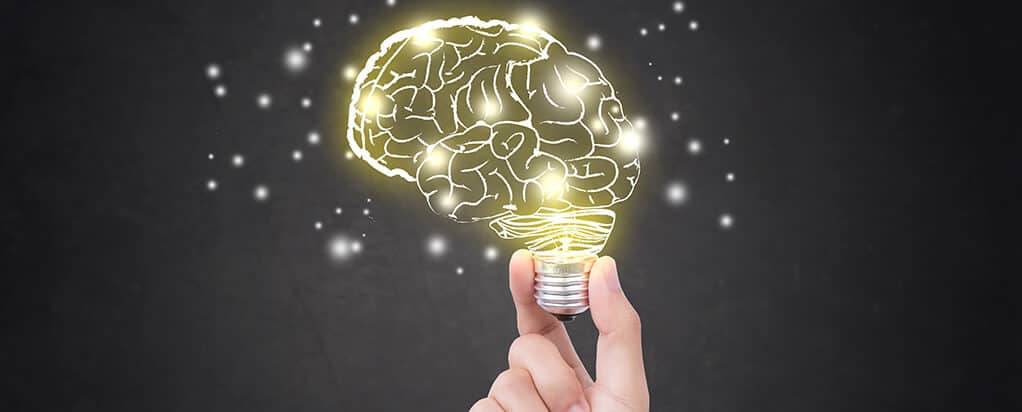
What is Growth Mindset and How Can it Help You Achieve Your Goals?
A growth mindset is a mentality you adopt toward improving your skills, intelligence, and capabilities while increasing the motivation to achieve your goals.
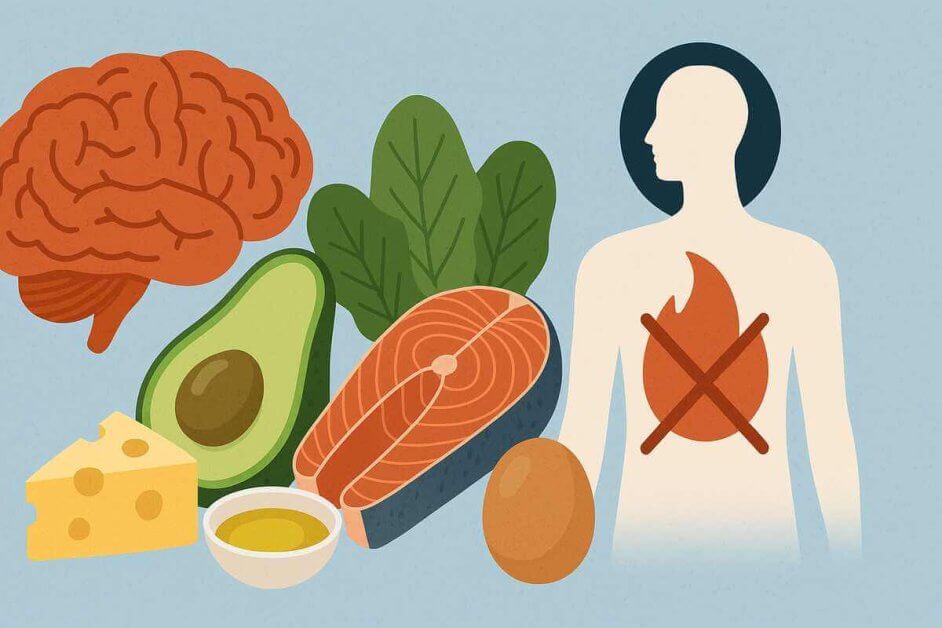
What Is The Ketogenic Diet? A Beginner’s Guide
Discover what is the ketogenic diet — a low-carb, high-fat way of eating that shifts your body into fat-burning, ketone-producing mode.

The 5 Best Motivational Books of All Time
Discover life-changing wisdom and strategies in the best motivational books, igniting passion, purpose, and productivity in your journey to success.

The 5 Best Evidence-Based Supplements For Anxiety
The 5 best evidence-based supplements for anxiety include passionflower, kava, St John’s wort, L-arginine, and magnesium, according to recent research.

Is Red Meat Bad For You? 10 Meat Myths
Is red meat bad for you? Discover the truth behind the myths and learn why meat might be healthier than you’ve been told.
